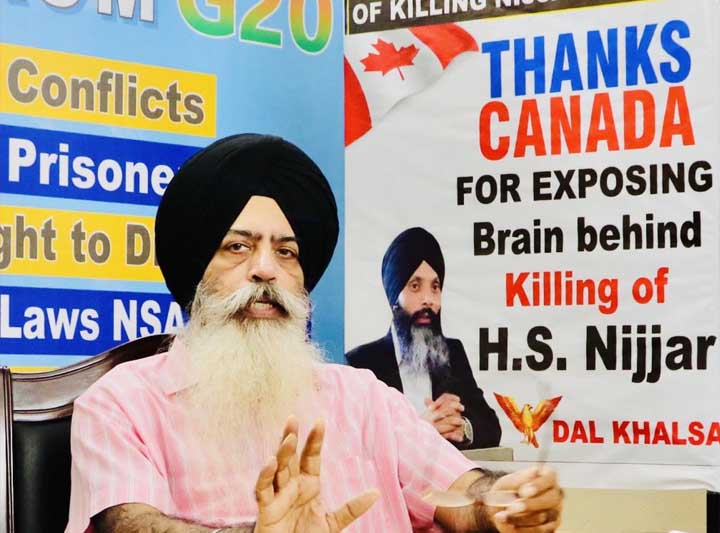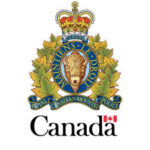Sikh stand on India’s Transnational Operations vindicated by Canada and U.S. diplomatic actions, says Dal Khalsa
In a rapidly escalating diplomatic conflict, Canada’s investigation into the killing of Sikh activist Hardeep Singh Nijjar has put India’s transnational repression tactics under global scrutiny. Sikh political circles across the Diaspora and in homeland Punjab are abuzz with the evolving scenario. In a statement issued today, Dal Khalsa has hailed Canada and the U.S. for their strong stance, accusing India’s intelligence agency RAW of orchestrating extrajudicial operations against Sikh activists abroad. It is time for the international community to hold India accountable for its human rights violations, says Dal Khalsa. WSN reports.
![In a rapidly escalating diplomatic conflict, Canada’s investigation into the killing of Sikh activist Hardeep Singh Nijjar has put India’s transnational repression tactics under global scrutiny. Sikh political circles across the Diaspora and in homeland Punjab are abuzz with the evolving scenario. In a statement issued today, Dal Khalsa has hailed Canada and the U.S. for their strong stance, accusing India’s intelligence agency RAW of orchestrating extrajudicial operations against Sikh activists abroad. It is time for the international community to […]](https://www.theworldsikhnews.com/wp-content/uploads/2024/10/Dal-Khalsa-news-360x267.jpg)
In the wake of Canada’s ongoing investigation into the killing of Sikh activist Hardeep Singh Nijjar, a Canadian citizen and vocal proponent of Sikh independence, the Dal Khalsa, a prominent Sikh political group, stated that its longstanding allegations of India’s transnational repression have been vindicated.
Dal Khalsa praised Canadian Prime Minister Justin Trudeau and the Royal Canadian Mounted Police (RCMP) for their persistent efforts in uncovering what it claims to be the Indian state’s involvement in Nijjar’s assassination, an accusation that India has vehemently denied.
Speaking on the matter with the World Sikh News, Dal Khalsa’s political affairs secretary, Kanwar Pal Singh, said that the revelations have validated the organization’s warnings about India’s use of covert operations to target Sikh activists living abroad.

He emphasized that while it has taken decades for the global community to recognize the scale of India’s alleged human rights violations, the strong reactions from both Canada and the United States signal that India’s tactics are no longer being ignored.
“While that sounds comforting, we have been at the receiving end for a long time and we are itching for this development to reach its logical conclusion in the indictment of the Indian state at the international level,” said Kanwar Pal Singh, in reply to a WSN query.
Dal Khalsa, however, maintains that India’s refusal to cooperate in the investigation is a clear indication of its culpability, and it applauded Canada for upholding the rights and security of its Sikh citizens.
Canada’s assertive investigation into the case has sparked a diplomatic rift with India, with Ottawa expelling Indian diplomats and accusing New Delhi of obstructing the inquiry. In response, India dismissed the allegations and retaliated with its own diplomatic measures. Dal Khalsa, however, maintains that India’s refusal to cooperate in the investigation is a clear indication of its culpability, and it applauded Canada for upholding the rights and security of its Sikh citizens.
The exhaustive investigation by the Royal Canadian Mounted Police (RCMP) silences the many distractions that have been proffered by the Indian Ministry of External Affairs seeking evidence for the murder of Hardeep Singh Nijjar and the threat to lives of others. The RCMP has said, “Over the past few years, and more recently, law enforcement agencies in Canada, including the RCMP, have successfully investigated and charged a significant number of individuals for their direct involvement in homicides, extortions and other criminal acts of violence.”
the many distractions that have been proffered by the Indian Ministry of External Affairs seeking evidence for the murder of Hardeep Singh Nijjar and the threat to lives of others. The RCMP has said, “Over the past few years, and more recently, law enforcement agencies in Canada, including the RCMP, have successfully investigated and charged a significant number of individuals for their direct involvement in homicides, extortions and other criminal acts of violence.”
Reacting to this, Kanwar Pal Singh told the World Sikh News, “This is only the tip of the iceberg. The whole statement of RCMP is an eye opener. RCMP has concluded that, “there has been well over a dozen credible and imminent threats to life which have led to the conduct of Duty to Warn by law enforcement with members of the South Asian community, and specifically members of the pro-Khalistan movement.”
The heightened attention to the safety and security of Sikh Canadians is a step that should have been taken much sooner. For decades, we have consistently raised concerns about the actions of the Indian state against Sikhs, particularly those advocating for Sikh rights. Despite our efforts, these warnings have often gone unheard, and the current situation is a reflection of the long-standing challenges that Sikh activists and the community at large have faced over the past forty years.
“The current focus on public safety and security of Sikh Canadians should have been done much earlier,” said the political secretary of the pro-Sikh freedom political party.
“We have been crying hoarse of what India has done to Sikhs in general and Sikh activists in particular for the last forty years.”
Citing Canada’s handling of the case, Dal Khalsa pointed out that the investigation has exposed the involvement of Indian intelligence services, particularly the Research and Analysis Wing (RAW), in what it describes as a broader campaign of transnational extrajudicial operations.
 Dal Khalsa has once again reiterated that India’s National Security Advisor, Ajit Doval, has orchestrated a strategy to suppress Sikh voices abroad, a move unequivocally backed by India’s political leadership.
Dal Khalsa has once again reiterated that India’s National Security Advisor, Ajit Doval, has orchestrated a strategy to suppress Sikh voices abroad, a move unequivocally backed by India’s political leadership.
Canada is not the lone ranger in this case. It has also drawn attention from the United States, with U.S. intelligence reportedly playing a role in pressuring Indian officials. The arrest of Vikram Yadav, a former Indian intelligence officer linked to extrajudicial activities, was cited by Dal Khalsa as evidence that the U.S. has intensified scrutiny on India’s actions, further emboldening Canadian authorities to pursue their investigation.
 Dal Khalsa expressed concerns over revelations that India has allegedly used criminal syndicates to carry out its operations, drawing parallels with earlier incidents involving notorious Indian gangsters.
Dal Khalsa expressed concerns over revelations that India has allegedly used criminal syndicates to carry out its operations, drawing parallels with earlier incidents involving notorious Indian gangsters.
The group urged the international community, including the European Union and the United Nations, to hold India accountable for its actions, warning that global pressure is the only language India responds to.
Dal Khalsa remains hopeful that continued international attention will result in greater accountability for what it describes as a systematic campaign of repression targeting Sikh communities worldwide, reads the statement.
